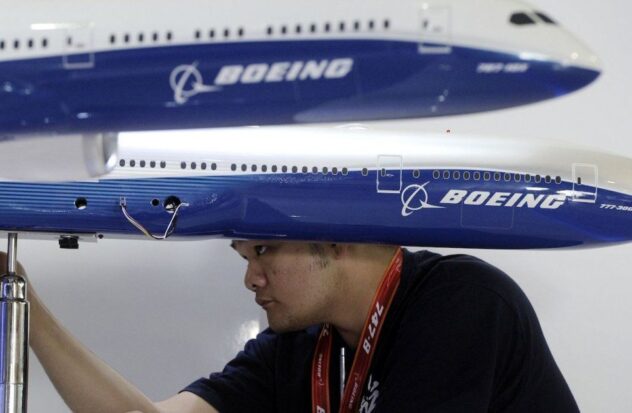NY.- The US civil aviation regulator (FAA), strongly criticized after the accidents of two planes Boeing in 2019 and 2018, it seems to be dragged down again by that company’s quality problems.
Target of numerous investigations and audits at national and international level, Boeing he insists again and again that he works “with complete transparency and under the supervision of the FAA.”
Boeing planes targeted for problems
Since early 2023, the planemaker has had production issues related to poor quality control affecting its flagship planes, the 737 MAX and 787 Dreamliner.
In January, a new incident on an Alaska Airlines plane led to the fall of several company executives – including its boss Dave Calhoun, whose departure is scheduled for the end of 2024 – and the limitation of production of the 737 MAX.
The FAA, which has changed executive directors four times since August 2019, has been dragged down by those problems.
Democrat Richard Blumenthal, chairman of a Senate committee investigating the security of Boeingthinks that the regulatory body “must also be held accountable.”
Following the January incident, the FAA gave the manufacturer 90 days to develop a “comprehensive action plan” aimed at correcting the numerous deficiencies identified.
Improvement for the FAA
“I think the FAA is doing the most it can, that it has greatly improved its monitoring of Boeing since the two accidents” of the 737 MAX 8, which left 346 dead, Jeff Guzzetti, an aviation safety consultant who worked for the FAA, told AFP. FAA and the NTSB investigative agency.
The lack of sufficient economic and human resources has led the FAA to delegate the task of controlling the conformity and quality of aircraft to industrial employees.
“There is a conflict of interest,” said Hassan Shahidi, president of the Air Transportation Safety Foundation. The system “must evolve so that the FAA has more direct oversight responsibility.”
Like Guzzetti, Shahidi observes an increase in supervision, but believes that the regulator must have “more” of its own inspectors, although this “takes time.”
The organization is “on the right path,” said Richard Aboulafia, director of the consulting firm AeroDynamic Advisory. “There is nothing that cannot be corrected with additional oversight and resources.”
“Record” financing
The FAA is funded directly by Congress.
On Thursday, the Senate adopted a five-year funding bill that gives the agency “record” money and “provides it with the stability it needs to fulfill its primary mission: promoting aviation safety,” said Democratic Sen. Maria Cantwell. , president of the Commerce and Transportation Committee.
The text must still be examined by the House of Representatives.
The shortage of qualified personnel, from mechanics to engineers, aggravated by the pandemic, affects the entire aviation industry, and the FAA can hardly compete, in terms of salary and working conditions, with industrialists.
“Hiring and retaining talented technicians is a big problem, even for Boeing,” Guzzetti noted.
The investigation into the two accidents showed that Boeing had knowingly hidden from the FAA software design errors that generated the disasters, Joe Jacobsen, a whistleblower, recalled before the Commission in mid-April.
Jacobsen, who worked for 25 years at the FAA and before that another eleven years at Boeing, considered that the regulator is “too captive” of the manufacturer.
The FAA depends on the Department of Transportation, whose inspection general (OIG) has been conducting an audit since June 2022 on the entity’s supervision of the production of the 737 and 787. Its final report is scheduled for next summer.
In 2021 the OIG concluded that “weaknesses” in certification and delegation of authority had impaired oversight of the 737 MAX 8.
Source: AFP

